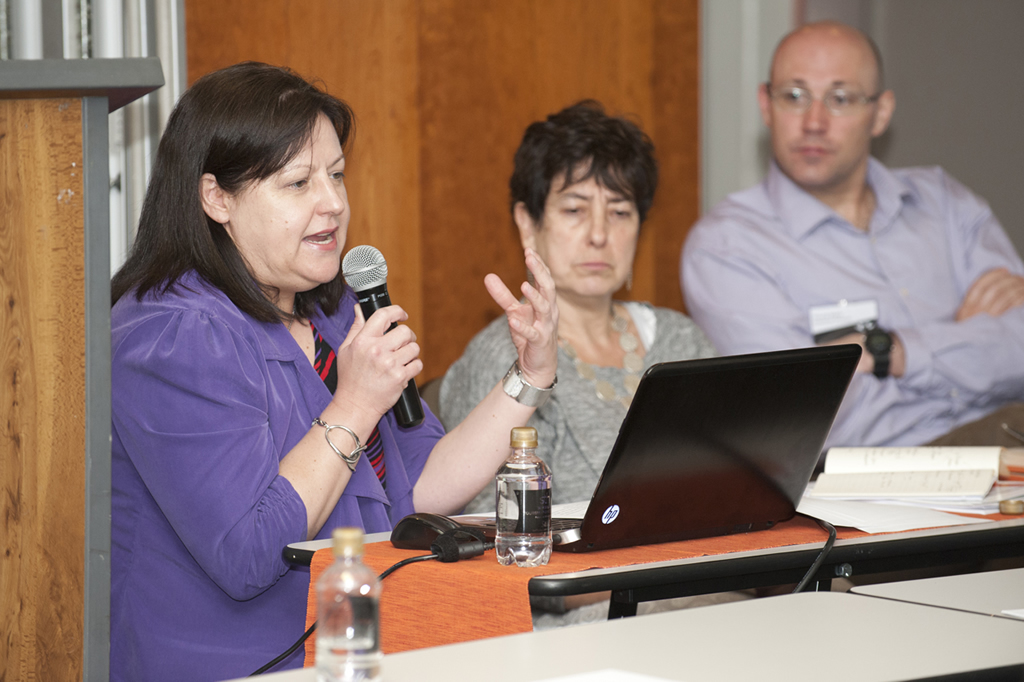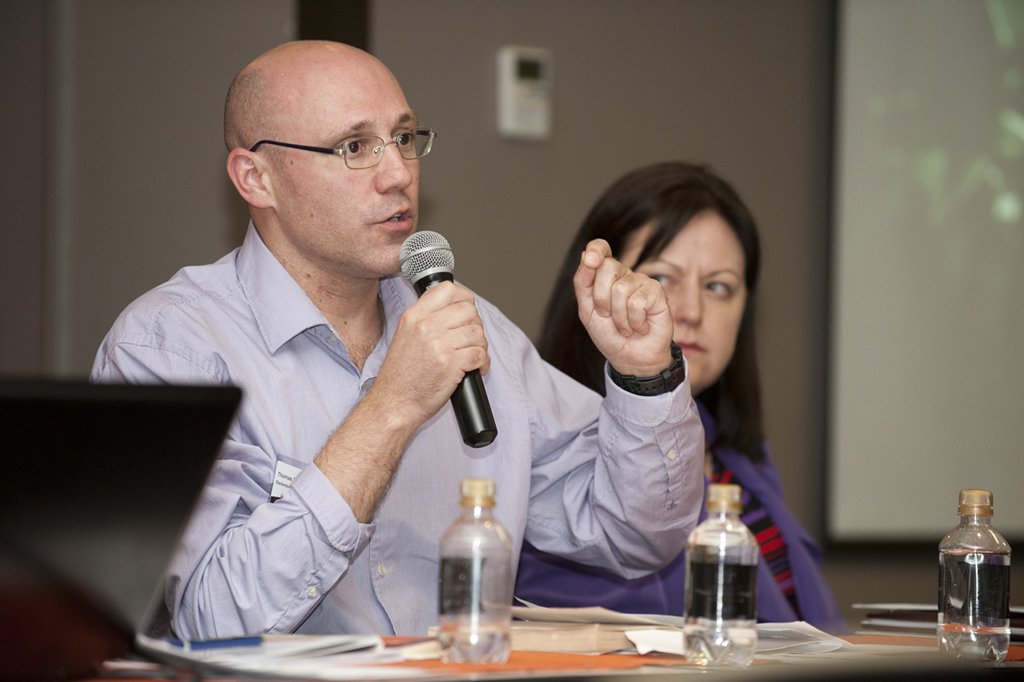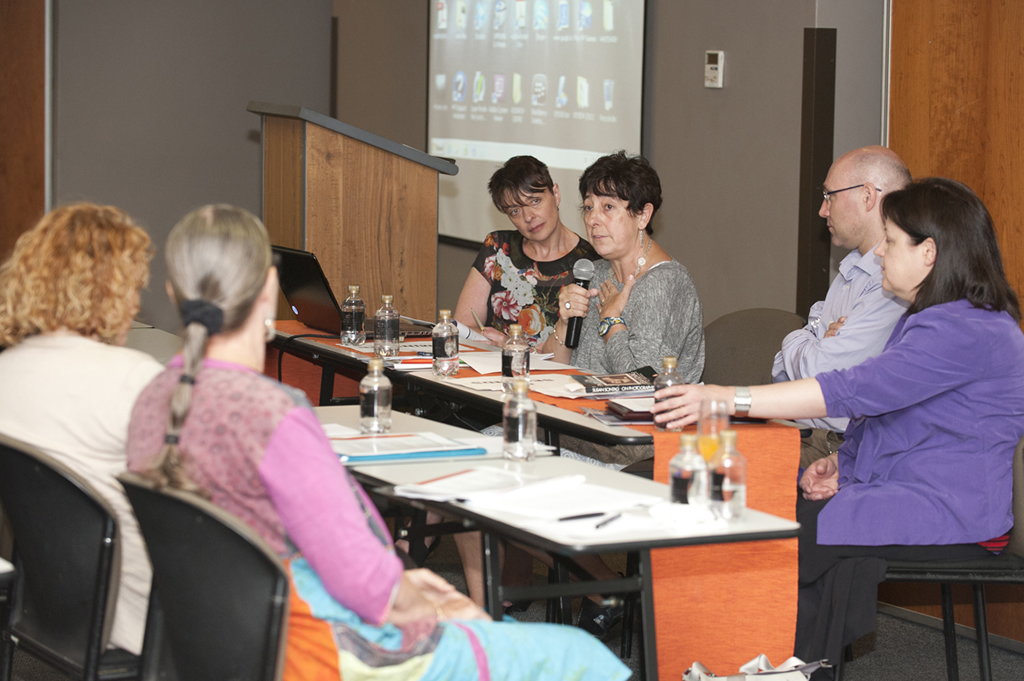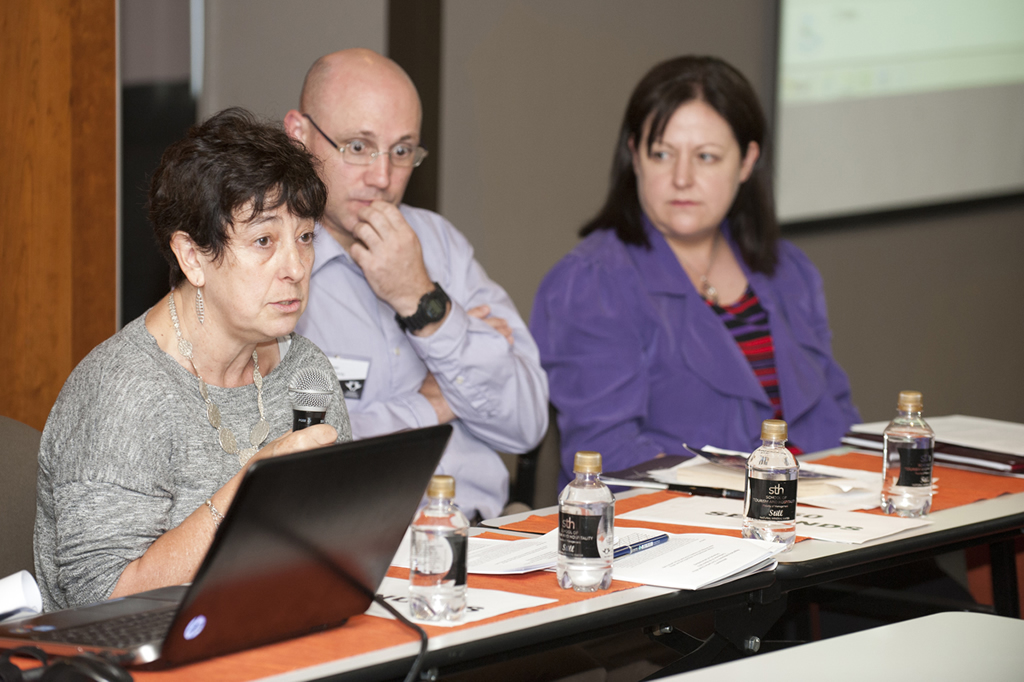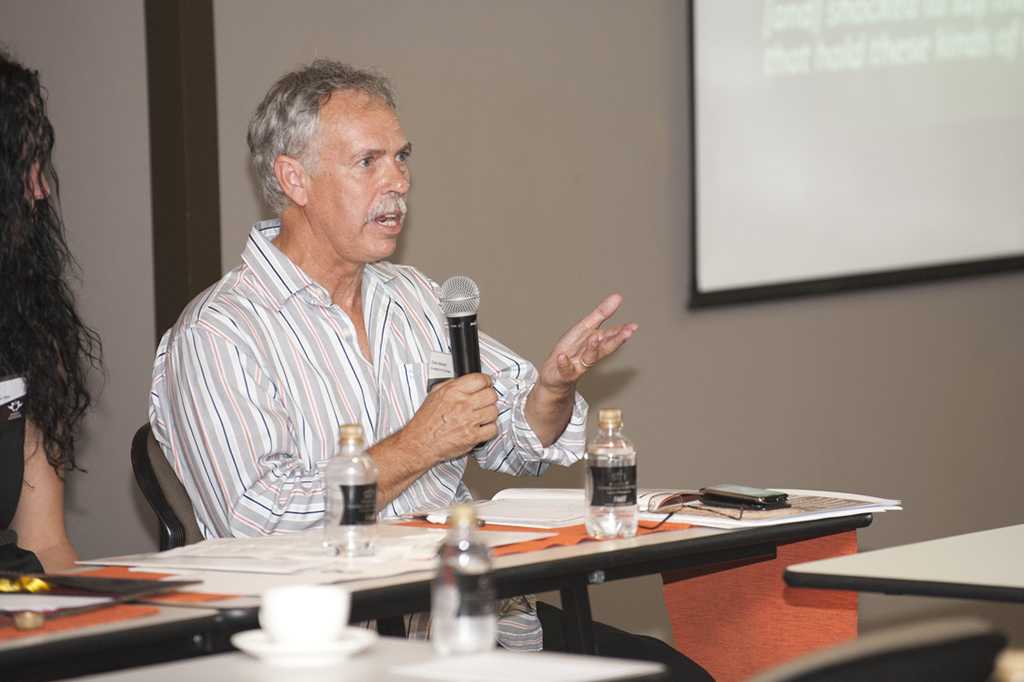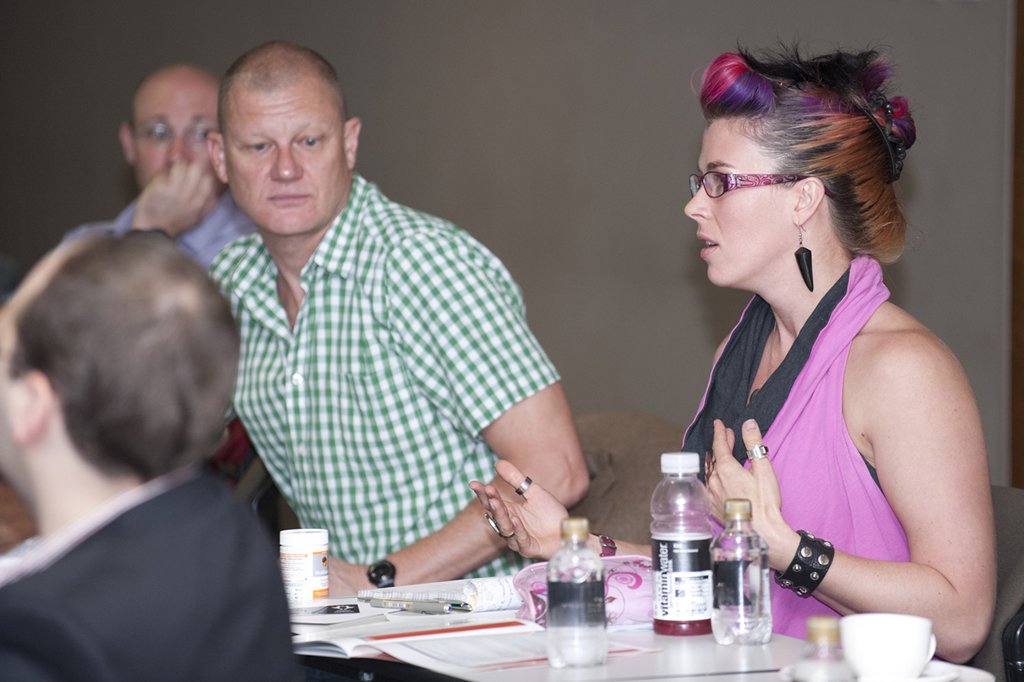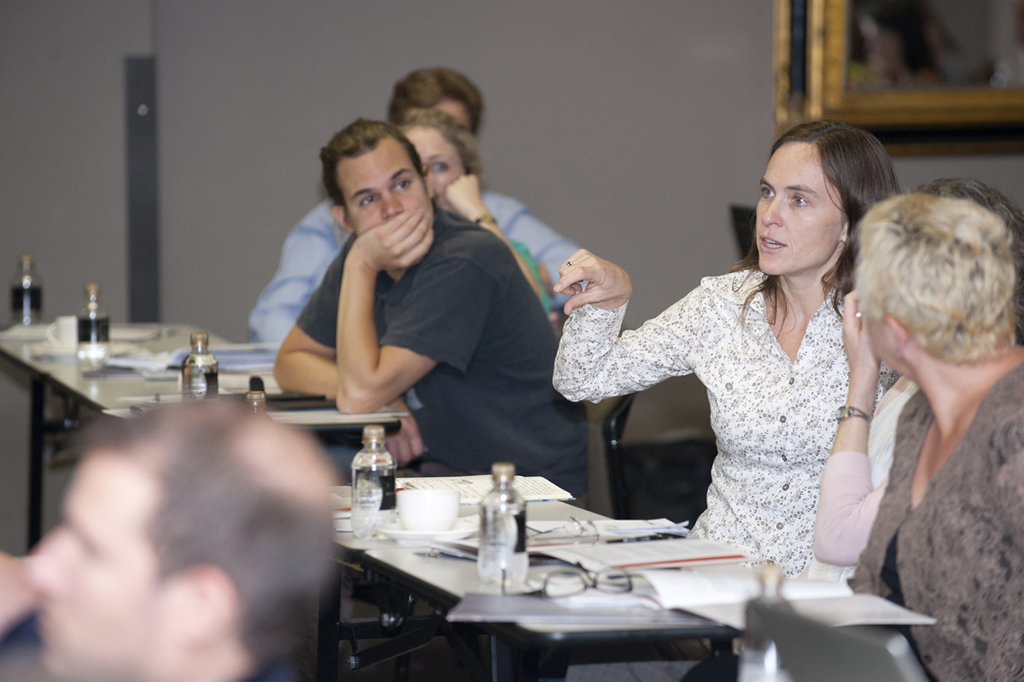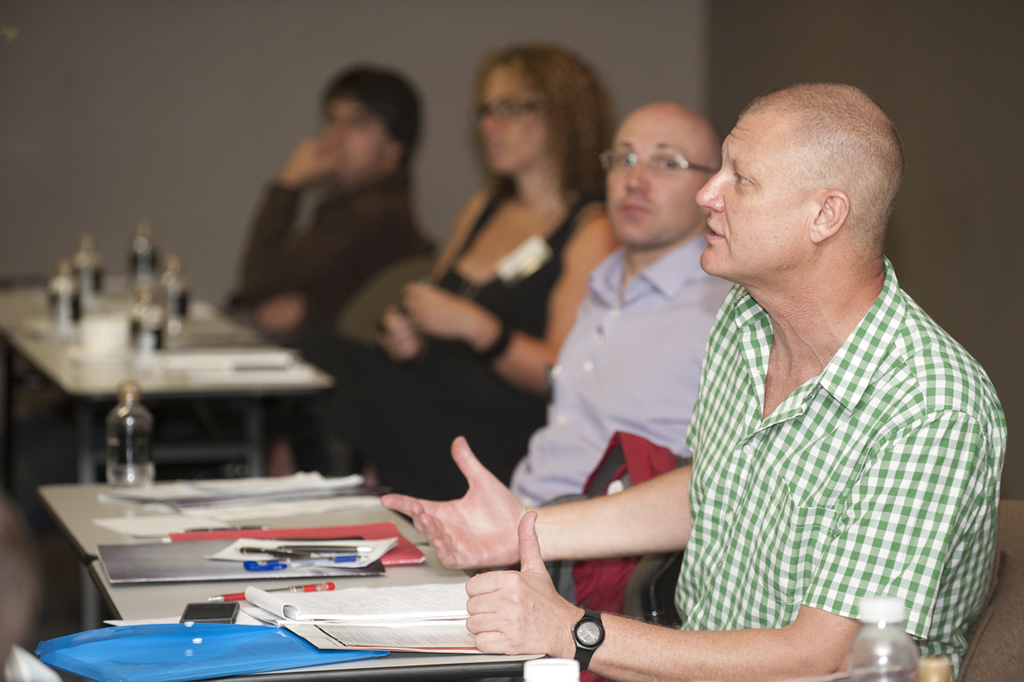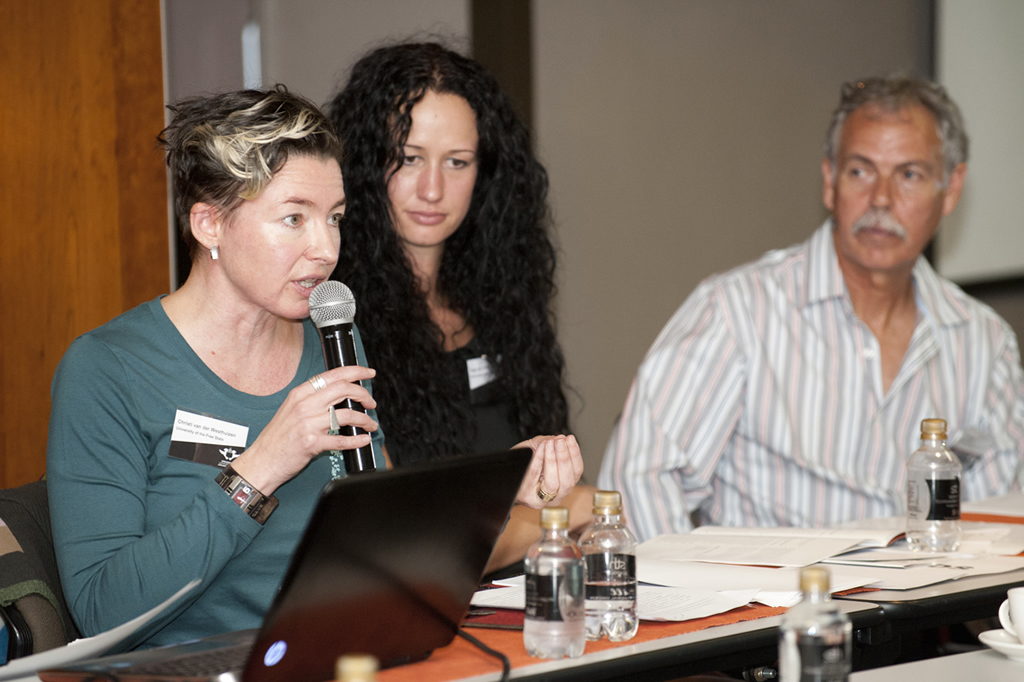WHITEWASH I: NEGOTIATING WHITENESS IN 21ST CENTURY SOUTH AFRICA
HOSTED BY VIAD IN COLLABORATION WITH DR LOUISE BETHLEHEM (HEBREW UNIVERSITY OF JERUSALEM)
19 September - 20 March, 2013 | School of Tourism and Hospitality, Bunting Road Campus, University of Johannesburg
This two-day interdisciplinary, international conference was held at the School of Tourism and Hospitality, University of Johannesburg, 19 & 20 March 2013. Whitewash 1 brought together a range of scholars — from postgraduate and early level researchers to high-profile writers — working across various disciplines, whose work advances a critical understanding of ways in which whitenesses are constructed in postapartheid South Africa. The event marked the first time that contemporary South African whitenesses have been the subject of a sustained scholarly enquiry that extends beyond individual research.
The conference format included a plenary panel featuring Ferial Haffagee (editor-in-chief, City Press), Melissa Steyn (Professor and Director, Wits Centre for Diversity Studies (WICDS)) and Sarah Nuttall (Professor of Literary and Cultural Studies; Director, Wits Institute for Social and Economic Research (WiSER)). Presenters interrogated constructs of whiteness by examining ways in which these are effected in institutions, politics, space, culture, society and lived experience in postapartheid South Africa, and their complex relations to privilege and power. An underpinning thematic was how constructs of whitenesses, in combination with gender and class constructs, are drawn upon in the formation of new identities, and social relations. To explore these issues, the event was structured around panels that involved theoretical considerations of
– relations between the social, political and cultural construct of whiteness, privilege and power
– how the legacies of historical whitenesses developed under colonialism and apartheid might still have a bearing on the present
– emergent white identity constructs in postapartheid South Africa
– ways in which constructs of whitenesses play out in contemporary visual culture and the media
– ways in which forms of South African whitenesses are currently being ‘reimagined’ in cultural production
– existing or emergent forms of postapartheid whitenesses and whitenesses in the global South
– examination of whether existing (Northern) theories of critical whiteness studies may be applicable or usefully
Background to the event
Although the complex and contested discourses surrounding whiteness are unavoidable in South African politics and popular culture, the loose field of analysis termed ‘critical whiteness studies’ has almost no coherent presence within the South African academy at large. The most canonical and heavily-cited writing on whiteness has thus far come out of the global North. Historical and current work being done in the field of global critical whiteness studies forms a backdrop to, and to some extent, informs the project. Global critical whiteness studies have relevance to postapartheid South Africa, in that they question the mechanisms of power that support and sustain whitenesses, draw attention to and deconstruct the master narrative of whitenesses and engage with processes of de-authorising whiteness through revisiting of subject positions from within the contexts of history, culture and power. Nevertheless, while global critical whiteness studies provide useful historical and methodological frameworks for analyses of postapartheid white subjectivities, there are significant areas of difference, given South Africa’s apartheid history and its demographics.
Over the past 15 years individual sociologists, historians, literary theorists and others have made invaluable contributions to a critical understanding of whiteness in South Africa. However, despite these important interventions, in thinking about whiteness, scholars often fail to contextualise it as a construction, to position it as a naturalised or institutionalised entity in a social system constructed by participants from within a particular culture, or to provide insight into the ways in which race informs particular experiences of selfhood. Whitewash 1 was born out of the realisation of this lack and a concurrent desire to critically rethink, renegotiate and reframe whiteness within the global South. In a postapartheid context in which white social and economic privilege can be argued to have proven remarkably resilient, the interrogation of constructions of whiteness, and the dismantling of its position of power and privilege, beyond simplistic narratives of guilt or refusal of guilt, is an important project.
PROGRAMME:
Click here to download the programme

